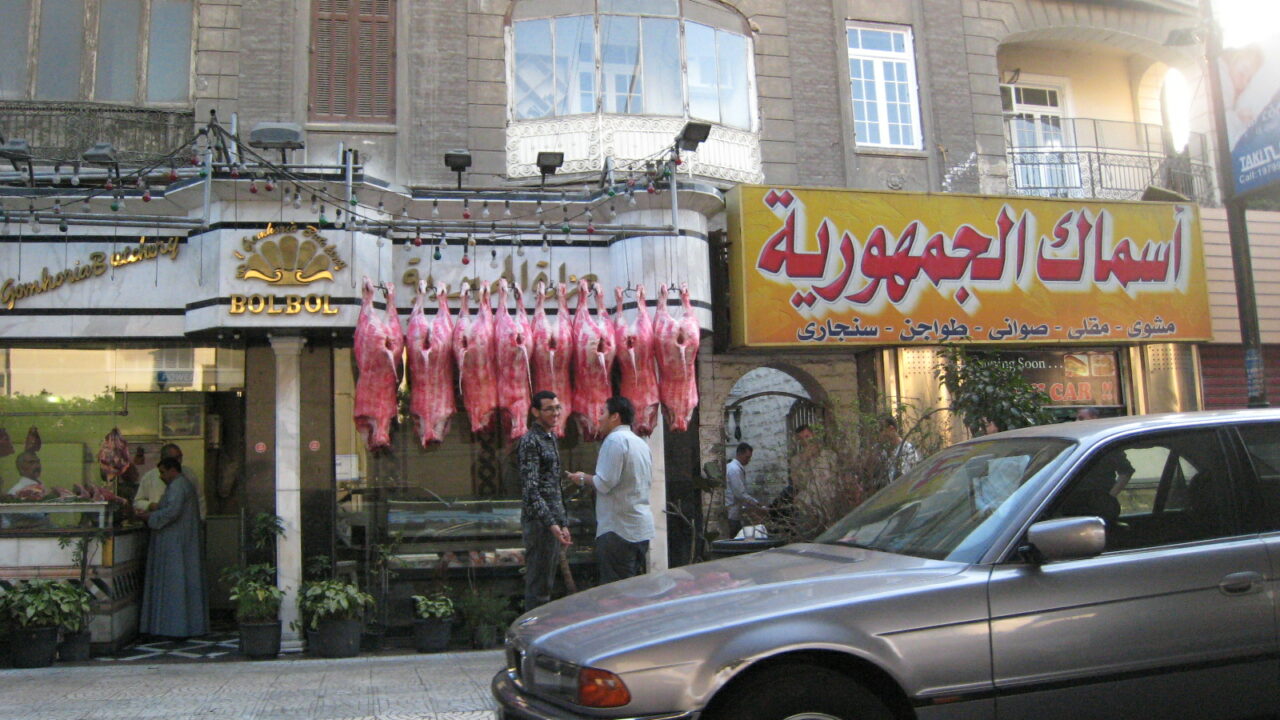The Egyptian beef market has seen a terrible year as the country feels the chill of an IMF (International Monetary Fund) austerity programme – but there may still be a flicker of hope for Irish beef as it returns after a 17-year ban.
Back in January, the reopening of the Egyptian market to Irish beef and live cattle was widely welcomed as good news, opening up a market of 95 million enthusiastic beef eaters in the largest consumer market in the Middle East and North Africa.
It had been almost 17 years since Cairo had locked down imports at the height of the BSE crisis, a trade which had been worth around £200 million (€254m).
But some expressed concerns about Egypt’s potential to provide a return for Irish farmers.
“It cannot be stressed often enough that announcing new export opportunities is practically pointless unless primary beef producers can see a resultant improvement in their cattle prices,” Michael Guinan of the ICMSA (Irish Creamery Milk Suppliers Association) said at the time.
Just two months earlier, the Egyptian central bank had allowed a major devaluation of the Egyptian pound in order to meet the terms of an IMF loan package. Before November 2016, one euro had bought you a little less than 10 Egyptian pounds, but by the New Year, that same euro bought you 20 pounds.
Rising energy prices have hit Egypt’s middle-class consumers in the pocket, with electricity bills and the price of a tank of petrol soaring.
The Muslim festival of Eid Al-Adha took place last weekend – the faithful are called upon to slaughter an animal and divide its meat between their family, their neighbours, and the poor. But shrinking disposable incomes mean beef is off the table for many.
“During last year’s [Eid] Al-Adha feast, live cattle was sold at EGP 7,000-12,000 [€330-€560], this year [we are] seeing prices in the EGP 15,000-18,000 [€700-€850] range,” a report by US agricultural analysts stationed in Cairo said.
The prices were considered so high that Egyptians launched a social media campaign, with a call to boycott meat trending on Twitter. Many claim prices are being fixed by butchers, with one celebrity tweeting “Boycott red meat and its products and discipline the greedy traders, maybe then the government will toughen up a bit”.
Before the devaluation, the US Department of Agriculture had reckoned Egypt’s total beef imports at 300,000t this year. This week, it cut that estimate by 50,000t “due to the challenges importers are facing as a consequence of the 2016 devaluation”.
“Devaluation impacted beef consumption in 2017, the ensuing price surge led to a consumption drop of 12.5% or 87,000t,” the report said.
The USDA is forecasting a recovery in imports to 280,000t next year as the Egyptian pound stabilises against foreign currencies and Egyptians’ buying power improves. But the Egyptian government’s plans for the country’s beef sector have the ultimate goal of expanded domestic production, and live imports from neighbours in North Africa.
So where does Irish beef fit in?
Although Egypt has stressed Ireland’s importance as a source of breeding stock for its drive to expand domestic production, our beef exporters will be on the back foot for cultural and logistical reasons.
“Domestic consumers also prefer fresh over frozen beef for cultural reasons,” the USDA analysts said. “More affluent consumers view frozen imported beef as being an inferior product. Their opinion is premised on the fact that the bulk of frozen imported beef are low-quality cuts sold at government outlets at discounted prices.”
Brazil is the largest supplier of frozen beef, sending 40,000t in the first half of this year in spite of a temporary ban in March in the wake of a bribery scandal in the meatpacking sector there.
That’s where most US frozen beef goes in Egypt, but the market has been hugely erratic.
Several years of unrest in Egypt saw tourist numbers plummet, taking beef imports with them. Right before the Arab Spring reached Egypt, the US sent 33,814t, but falling tourist numbers and foreign exchange headwinds saw that plunge to just 353t last year.
“With a stronger Egyptian pound in 2018 and the return of tourism industry, US exports of frozen beef will recover,” the USDA analysts wrote. “The Central Bank of Egypt reports that tourism receipts tripled in the last three months of this fiscal year. Tourism revenue rose to $1.5 billion in the fourth quarter that ended June 30, 2017, from $510 million in the same period a year ago.”
Finding new markets for Irish beef is vital with the impact of Brexit on the horizon, but Egypt may be some way off being a cash cow for Irish farmers.
